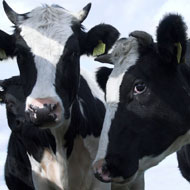
UK did not report any cases of the disease in 2016
The European Food Safety Authority (EFSA) has confirmed a low incidence of transmissible spongiform encephalopathies (TSEs) in the EU.
The findings are published in EFSA's second EU summary report which provides results of data gathered by EU Member States, Iceland, Norway and Switzerland for 2016. It’s main findings are:
• five cases of BSE in cattle (out of 1,352,585 animals tested) in the EU – none of which entered the food chain. Only one of these was classified as classical BSE. The animal was born after the EU ban on the use of animal proteins in livestock feed was enforced in 2001.
• 685 cases of scrapie in sheep (out of 286,351 tested) and 634 in goats (out of 110,832 tested) in the EU.
• no cases of CWD in any of the 2,712 cervids tested (e.g. reindeer, elk and moose) in the EU. However, five cases of CWD were reported in Norway: three in wild reindeer and two in moose.
For the first time since the BSE epidemic started, and BSE cases have been reported, the UK did not report any cases of the disease.



 RCVS Knowledge has welcomed Professor Peter Cockcroft as editor-in-chief for Veterinary Evidence.
RCVS Knowledge has welcomed Professor Peter Cockcroft as editor-in-chief for Veterinary Evidence.